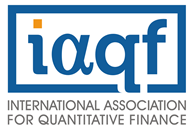|
Events / Thalesians Series |
About The Series The IAQF's Thalesians Seminar Series is a joint effort on the part of the IAQF (www.iaqf.org) and the Thalesians (www.thalesians.com). The goal of the series is to provide a forum for the exchange of new ideas and results related to the field of quantitative finance. This goal is accomplished by hosting seminars where leading practitioners and academics present new work, and following the seminars with a reception to facilitate further interaction and discussion. Call For Speakers About The Organizer Harvey Stein is a senior VP in the Labs group at Two Sigma. From 1993 to 2022, Dr. Stein was at Bloomberg, where he served as the head of several departments including Quantitative Risk Analytics, Counterparty and Credit Risk, Interest Rates Derivatives, and Quantitative Finance R&D. Harvey is well known in the industry, having published and lectured on credit risk modeling, financial regulation, interest rate and FX modeling, CVA calculations, mortgage backed security valuation, COVID-19 data analysis, and other subjects. Dr. Stein is on the board of directors of the IAQF, a board member of the Rutgers University Mathematical Finance program, an adjunct professor at Columbia University, and organizer of the IAQF/Thalesians financial seminar series. He's also worked as a quant researcher on the Bloomberg for President campaign. Dr. Stein holds a Ph.D. in Mathematics from the University of California, Berkeley (1991) and a B.S. in Mathematics from Worcester Polytechnic Institute (1982).
| Upcoming Seminars |
